51 Famous Quotes By Judith Butler That Challenge Conventional Notions
Judith Butler is an eminent American gender theorist and philosopher. Her works, thoughts and writings have influenced literary theory, ethics, queer, fields of third-wave feminist, and philosophy. Some of her notable works include, ‘Bodies That Matter: On The Discursive Limits of Sex,’ ‘Gender Trouble: Feminism and the Subversion of Identity,’ amongst various others. In these books she has challenged the traditional impressions of gender and has also developed her theory of ‘gender performativity’. Her works, theories, writings and thoughts have had a huge impact on queer and feminist scholarship. She has been vocal about her views, thoughts and opinions on subjects close to her heart, including the lesbian and gay rights movement. She has also expressed her thoughts and viewpoints on several contemporary political issues. Zoom through the quotes and sayings by Judith Butler. Take a look at the famous, inspiring, motivating and thought-provoking quotes and thoughts by Judith Butler.
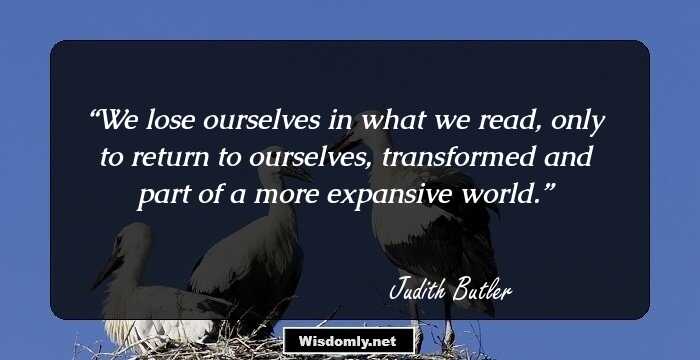
We lose ourselves in what we read, only to return to ourselves, transformed and part of a more expansive world.
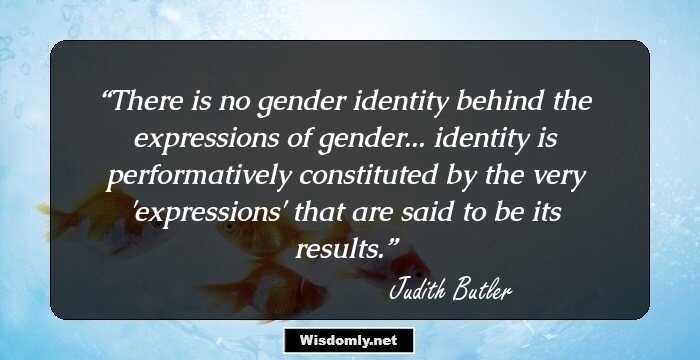
There is no gender identity behind the expressions of gender... identity is performatively constituted by the very 'expressions' that are said to be its results.
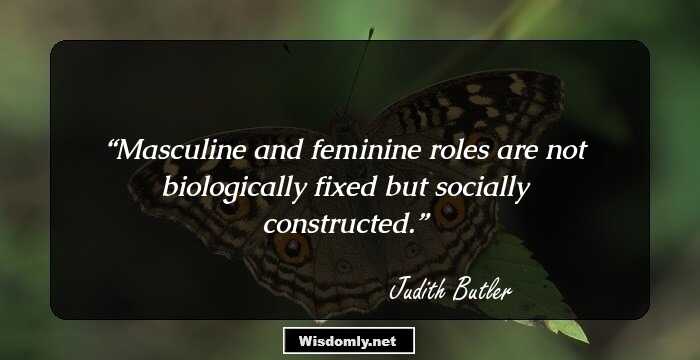
Masculine and feminine roles are not biologically fixed but socially constructed.
We act as if that being of a man or that being of a woman is actually an internal reality or something that is simply true about us, a fact about us, but actually it's a phenomenon that is being produced all the time and reproduced all the time, so to say gender is performative is to say that nobody really is a gender from the start.
When we say gender is performed, we usually mean that we've taken on a role or we're acting in some way and that our acting or our role playing is crucial to the gender that we are and the gender that we present to the world.
It's my view that gender is culturally formed, but it's also a domain of agency or freedom and that it is most important to resist the violence that is imposed by ideal gender norms, especially against those who are gender different, who are nonconforming in their gender presentation.
To say that gender is performative is a little different because for something to be performative means that it produces a series of effects. We act and walk and speak and talk in ways that consolidate an impression of being a man or being a woman.
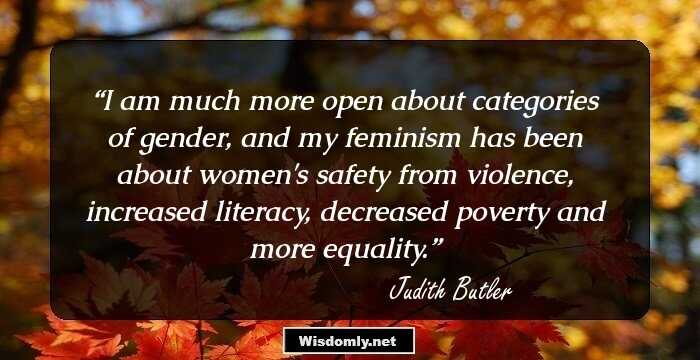
I am much more open about categories of gender, and my feminism has been about women's safety from violence, increased literacy, decreased poverty and more equality.
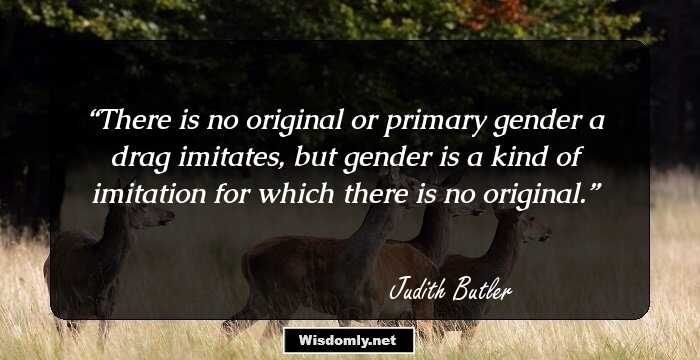
There is no original or primary gender a drag imitates, but gender is a kind of imitation for which there is no original.

Life has to be protected. It is precarious. I would even go so far as to say that precarious life is, in a way, a Jewish value for me.
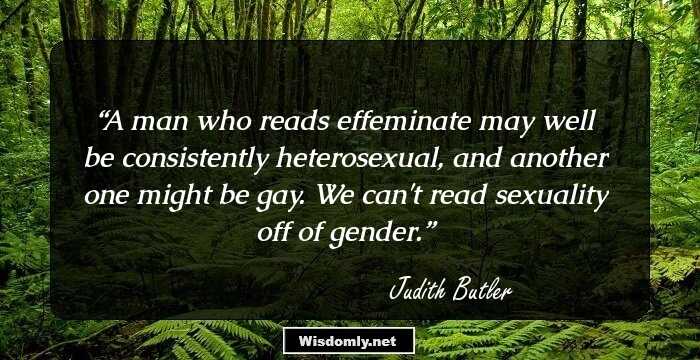
A man who reads effeminate may well be consistently heterosexual, and another one might be gay. We can't read sexuality off of gender.
I think we won't be able to understand the operations of trans-phobia, homophobia, if we don't understand how certain kinds of links are forged between gender and sexuality in the minds of those who want masculinity to be absolutely separate from femininity and heterosexuality to be absolutely separate from homosexuality.
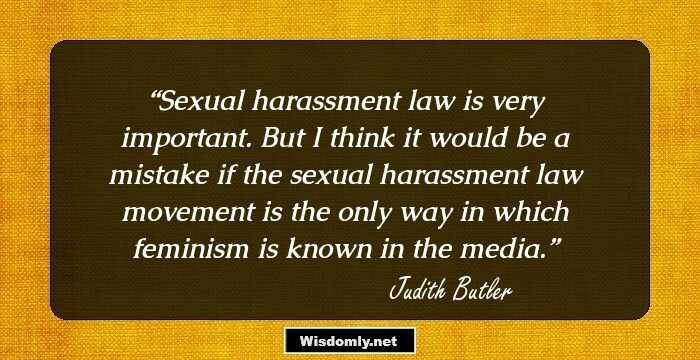
Sexual harassment law is very important. But I think it would be a mistake if the sexual harassment law movement is the only way in which feminism is known in the media.
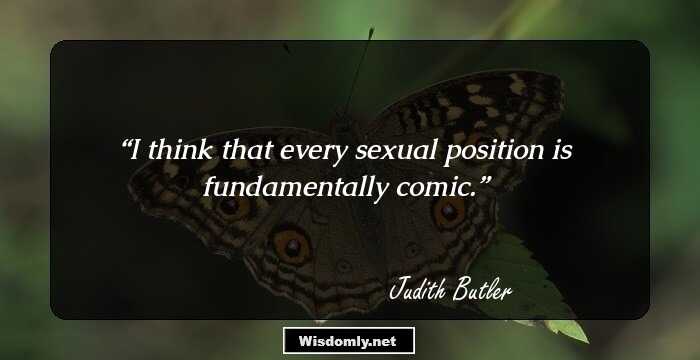
I think that every sexual position is fundamentally comic.
Race and class are rendered distinct analytically only to produce the realization that the analysis of the one cannot proceed without the other. A different dynamic it seems to me is at work in the critique of new sexuality studies.

Possibility is not a luxury; it is as crucial as bread.
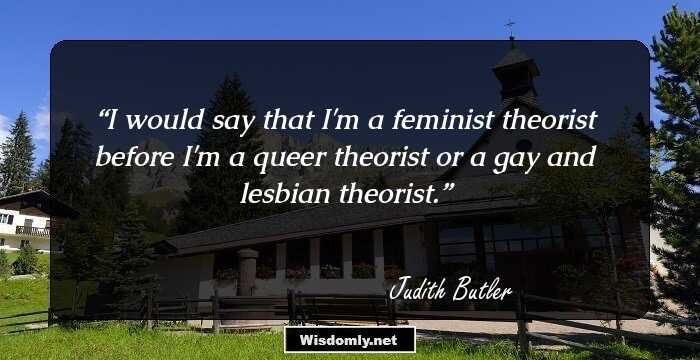
I would say that I'm a feminist theorist before I'm a queer theorist or a gay and lesbian theorist.
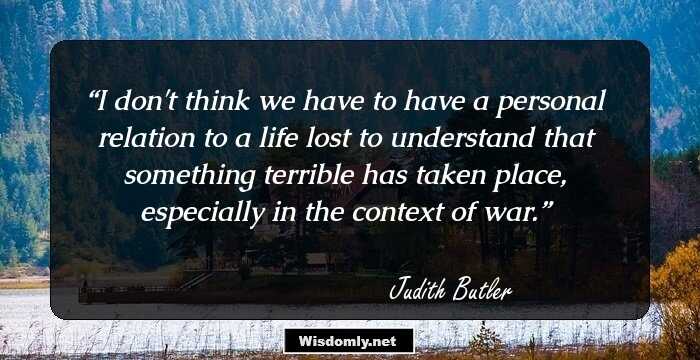
I don't think we have to have a personal relation to a life lost to understand that something terrible has taken place, especially in the context of war.
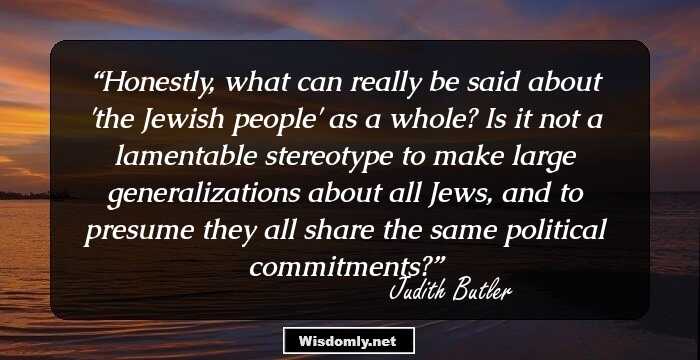
Honestly, what can really be said about 'the Jewish people' as a whole? Is it not a lamentable stereotype to make large generalizations about all Jews, and to presume they all share the same political commitments?
As a Jew, I was taught that it was ethically imperative to speak up and to speak out against arbitrary state violence. That was part of what I learned when I learned about the Second World War and the concentration camps.
In the earliest years of the AIDS crisis, there were many gay men who were unable to come out about the fact that their lovers were ill, A, and then dead, B. They were unable to get access to the hospital to see their lover, unable to call their parents and say, 'I have just lost the love of my life.'
Identifying Israel with Jewry obscures the existence of the small but important post-Zionist movement in Israel, including the philosophers Adi Ophir and Anat Biletzki, the sociologist Uri Ram, the professor of theatre Avraham Oz and the poet Yitzhak Laor.
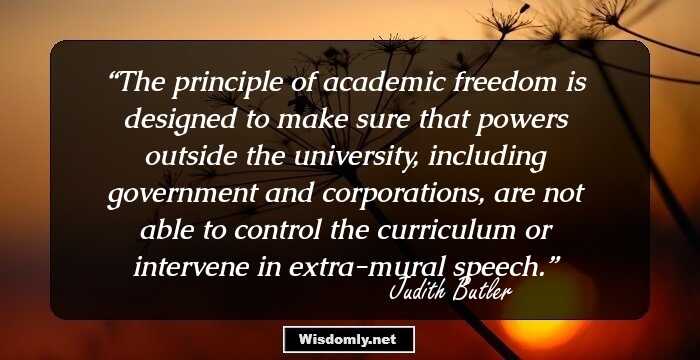
The principle of academic freedom is designed to make sure that powers outside the university, including government and corporations, are not able to control the curriculum or intervene in extra-mural speech.
Obama's failure to close Guantanamo is yet another instance where the rhetoric of democratic and constitutional rights proved not useful for his international relations, relations which are always pursued in ways that continue to link and fortify securitarian power with the opening of new markets.
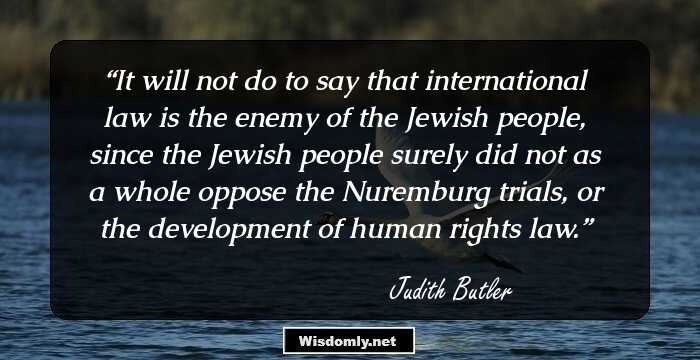
It will not do to say that international law is the enemy of the Jewish people, since the Jewish people surely did not as a whole oppose the Nuremburg trials, or the development of human rights law.
I'm a professor of comparative literature, among other things, so I'm able to read in a couple of other languages, and I understand that not everyone is, not everyone can, although it is quite stunning how many people do read Spanish in the United States, but moving between languages is also extremely helpful.
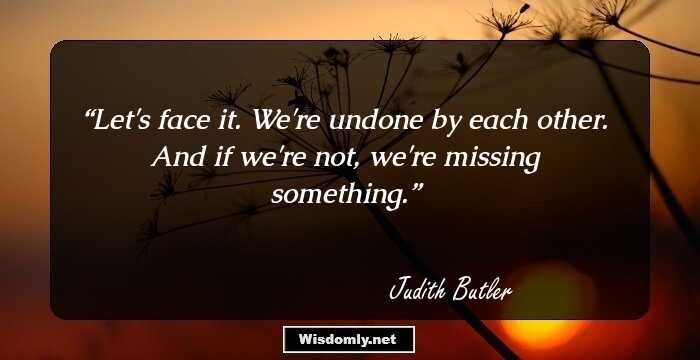
Let's face it. We're undone by each other. And if we're not, we're missing something.
Only if we accept the proposition that the state of Israel is the exclusive and legitimate representative of the Jewish people would a movement calling for divestment, sanctions and boycott against that state be understood as directed against the Jewish people as a whole.
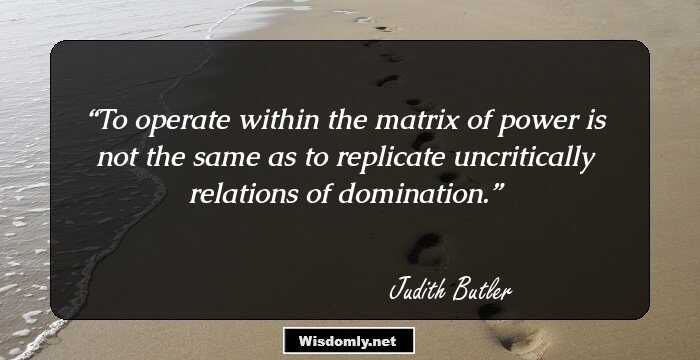
To operate within the matrix of power is not the same as to replicate uncritically relations of domination.
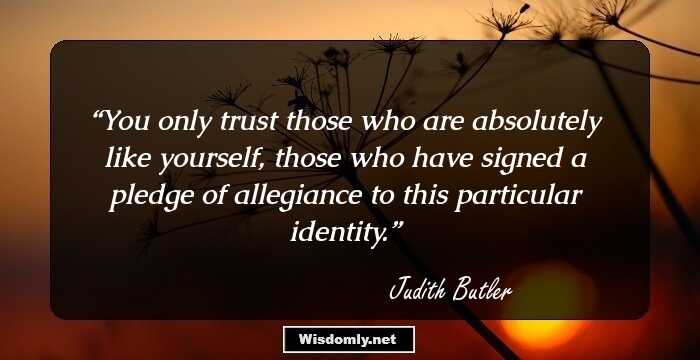
You only trust those who are absolutely like yourself, those who have signed a pledge of allegiance to this particular identity.










